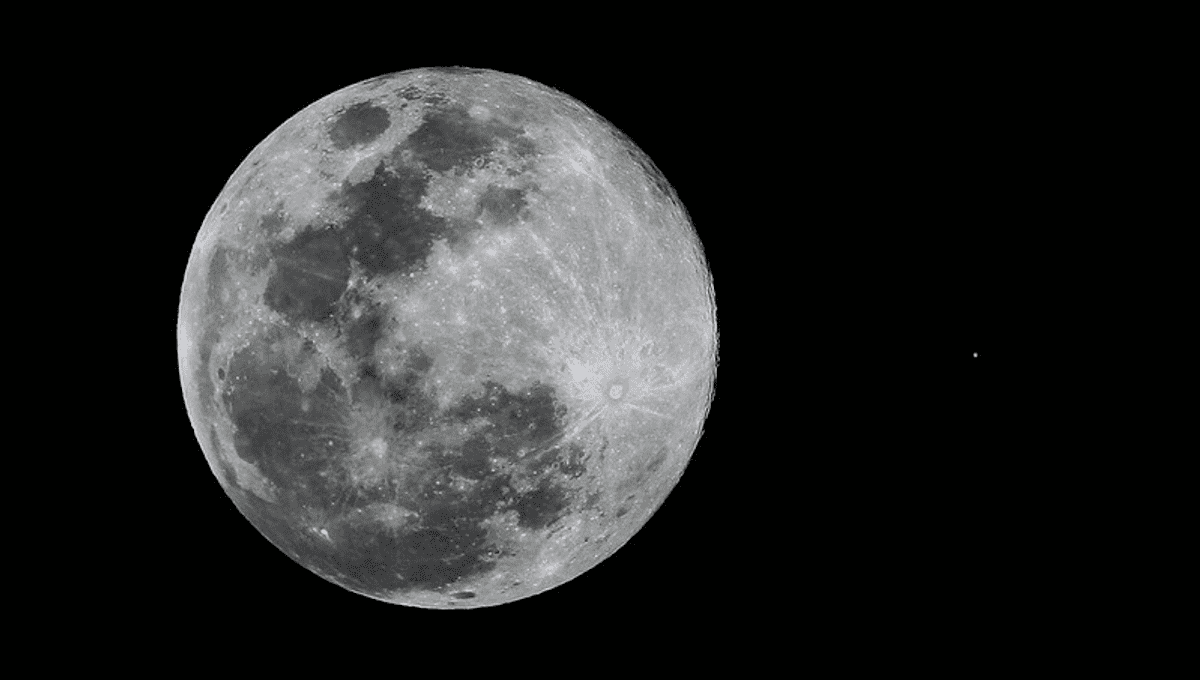
If you’ve been out at night recently you’ve probably noticed a very bright reddish object in the sky, visible even from cities suffering from bad light pollution. This week Mars is closer to Earth than it will be for another 11 years, making it hard to miss in the night sky.
If you’re in Western Europe, Canada, or most of the United States there will be an extra reason to look up midweek. From London, Mars will disappear behind the Moon at 4:58 am on December 8, reappearing at 5:58 am, a process known as an occultation. It takes more than 30 seconds for the planet to be fully snuffed out and to reappear, which can be fun to watch with even the smallest binoculars or telescope.
Lucky North Americans won’t even have to drag themselves out of bed to see the event. On the west coast, it will start between 6 and 7 pm local time on December 7, depending on location, and will also last about an hour. Even in Toronto, Mars does its disappearing act at a reasonably civilized 10:29 pm – civilized at least if you’re well rugged up.
America’s east coast misses out on the actual occultation, but the view of the celestial objects almost touching as the Moon creeps past could also be worth it.
The Moon passes in front of a planet on average about once a month from somewhere on Earth but few are as dramatic as this. For example, this year there have been six occultations of Uranus. Good as these are for puns, they’ve very not showy – the seventh planet not being visible to the naked eye, and hard to distinguish from a star in small telescopes. When the Moon is even halfway full it makes an object like Uranus even harder to see.
A rare exception occurred in November when the occultation happened to coincide with the total lunar eclipse, but only if you were in parts of east Asia.
Mars is always much brighter than Uranus, making occultations worth a look even without equipment, but it’s currently particularly bright. By sheer coincidence this occultation occurs the same night Mars is at opposition, meaning it’s directly opposite the Sun from us.
The Mars-Earth distance is the shortest around opposition, give or take a few days to allow for neither planet’s orbit being perfectly circular. This means that Mars, which varies in brightness dramatically depending on its distance, will be unusually bright and, if looking through a telescope, its disk will be particularly large. The event will occur in a part of the sky with many bright stars, with Aldebaran close by and Orion not much further off. Mars, however, will outshine even Sirius so close to opposition.
If that wasn’t enough to make this occultation stand out, this is the closest Mars opposition until 2033. The Martian orbit is much more eccentric (stretched out) than that of other planets. When oppositions occur near its furthest point from the Sun we see it at a distance almost twice as great as oppositions coinciding with close Mars-Sun approaches.
This year’s is the best for more than a decade, so occultation or not, enjoy Mars while you can. The 2018 opposition was considerably closer, however, and 2003 was the closest approach in 50,000 years.
Source Link: How And When To Watch The Spectacular Lunar Occultation Of Mars This Week